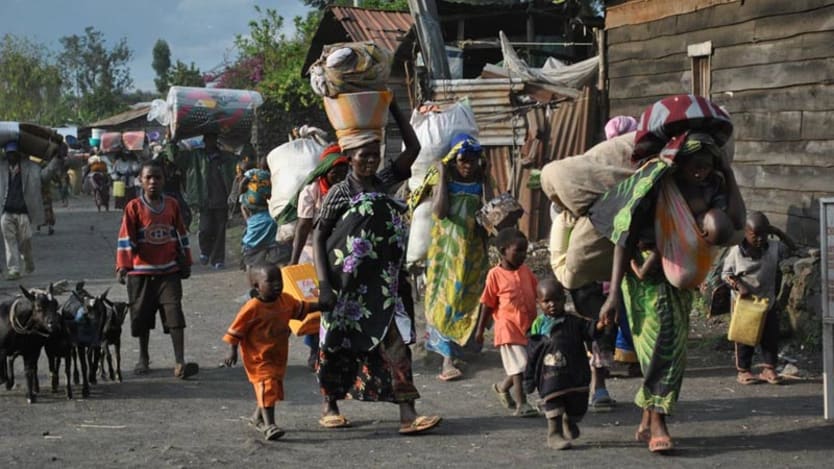
The world is facing an unprecedented number of displaced persons, with more than 60 million people displaced worldwide as a result of persecution, conflict, generalized violence, or human rights violations. As the world grapples with the current refugee and migrant crisis in Europe — in which over 1 million refugees and migrants have made perilous journeys over sea and across land — we have to remember that this is only a minor part of the world's displaced, and it is critical that we address the root causes of forced displacement and irregular migration.
The high numbers of forcibly displaced and migrants we currently witness will not decrease anytime soon. At least nothing points toward such a development. An increasing number of displacement situations around the world remain protracted and complex, owing to the lack of political resolution of conflicts.
Examples include the Central African Republic, Syria, South Sudan, Somalia, Afghanistan and Yemen; the average length of time people are in displacement is now more than 17 years. At the same time, the world has witnessed 15 new displacement crises arise during the last five years and has seen no resolution of crises to allow for return. The combination of these factors points toward the current situation, with very high numbers of people displaced, becoming the “new normal.”
In addition, displaced populations experience secondary and multiple displacements due to a deteriorating quality of asylum. This includes a lack of capacity of hosting states to provide essential services such as adequate housing, schools and livelihood opportunities. The absorption capacity of hosting states is a significant issue. Even middle-income countries such as Lebanon and Turkey have great difficulties dealing adequately with substantial population influxes. Protection and provision of basic needs and services suffer, and it continues to be a challenge for states to capitalize from the potential economic benefits, which an increased workforce could bring to a country or a region.
“A bold review of the solutions architecture is needed to determine which actors should drive forward the displacement solutions agenda, and what protection frameworks and tools are appropriate to address the root causes of protracted displacement.”
— Ann Mary Olsen, international director at the Danish Refugee CouncilFor a variety of reasons, sometimes related to issues of national security, some hosting countries have put in place restrictive legal regimes that do not allow refugees to access work and livelihood opportunities. These measures can never be a solution to the displacement and migration we see today.
Asylum is the cornerstone of international protection and all discussions on root causes and solutions need to recognize both the prevalence and scope of protracted displacement situations today, and that millions of displaced persons will live large parts of their lives in displacement and transitional situations.
During displacement, hosting countries need to ensure a dignified situation in which not only the right to adequate standards of living, including food, clothing and housing, is upheld, but where education for children and self-reliance of families can also be pursued. Those countries that have limited capacity need to be supported.
With the above considerations in mind, it is clear that the world sees a great impetus and momentum for a consolidated effort to address the drivers of displacement, root causes of conflict and chronic poverty.
Read our stories from #AcrossBorders: Origins
► DevExplains: Refugee vs. migrant
► Can we get smarter at preventing people from fleeing?
► Toward WHS 2016: The world must step up its political commitment
► Forced displacement and resilience in an age of mobility
► Pharmaceutical companies donating medicines in crisis situations
However, root causes are multifaceted, context-specific and require different strategic responses by states — refugees and migrants leave countries for a complex range of reasons, whether forcibly displaced or not. Detailed fragility and political economy analyses must form the basis of all support to failed or strong refugee and migration-producing states to avoid naivety around responses.
For the Danish Refugee Council, however, its focus is clear: protection must be at the center of all initiatives seeking to address the root causes of forced displacement and irregular migration. The majority of people who are forcibly displaced from their countries of origin or are forced to move irregularly have faced protection concerns and/or are at risk while on the move and in displacement. This calls for the need to ensure that all initiatives addressing the root causes of displacement uphold the principle of protection toward the displaced.
In recent years, displacement has taken a more central role in the global political and development landscape, and has increasingly been recognized not only as a humanitarian issue, but a development concern and opportunity.
The Danish Refugee Council applauds this recognition and appreciates the increasing engagement of institutions such as the World Bank, the European Union, the U.K. Department for International Development and others, in issues pertaining to displacement.
Still, a bold review of the solutions architecture is needed to determine which actors should drive forward the displacement solutions agenda, and what protection frameworks and tools are appropriate to address the root causes of protracted displacement.
For people whose lives have been on hold for years, this review will facilitate identification of who can, and should, forge the political will to address root causes, recognize barriers, and develop solutions to protracted displacement situations.
Across Borders is a monthlong online conversation hosted by Devex and partners — World Vision, the European Commission's Humanitarian Aid and Civil Protection department, the U.S. nonprofit partner of the International Organization for Migration and United Nations Volunteers — to analyze and amplify the discussion on global migration and current refugee crises through the lens of global security, development cooperation and humanitarian aid work, and more. Visit the campaign site and join the conversation on social media tagging @devex and #AcrossBorders.








